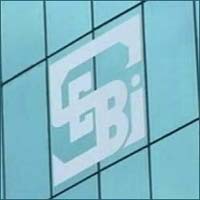SEBI is reportedly mulling a proposal to cut down expense
ratio to 1.75% and if accepted, the industry could face some tough times ahead
 Mumbai: The entire mutual fund
industry would be adversely affected if SEBI brings down expense ratio to 1.75%
from 2.50% for equity schemes, say industry sources. Moreover, the move to make
brokerage a part of the fund expenses would compound the problems of the
industry.
Mumbai: The entire mutual fund
industry would be adversely affected if SEBI brings down expense ratio to 1.75%
from 2.50% for equity schemes, say industry sources. Moreover, the move to make
brokerage a part of the fund expenses would compound the problems of the
industry.
SEBI is reportedly mulling a proposal made
earlier by the MF Advisory Committee to reduce the expense ratio from 2.5% to
1.75%. Further, the committee is said to have recommended that brokerage cost
be made a part of the total expense ratio of a scheme.
A CEO of a fund house tells us that
SEBI is unlikely to go ahead with this move.
“The
facts have been presented to SEBI. According to me, expense ratio is unlikely
to come down. SEBI was trying to figure out whether there is a possibility or
not but the data which has been presented clearly makes it an impossible case.
You cannot have one cost for all AMCs. The cost economics are different for all
AMCs, be it large, small or new players,” says this CEO, requesting anonymity.
If SEBI were to accept this proposal, AMCs
would have to pay brokerage and STT from the expense ratio itself. Currently brokerage and STT forms a part of
‘cost of investments’ and is not a part of annual expense ratio.
Sources say that the proposal has not been accepted yet. They say that if SEBI accepts this proposal, it would further strain the profitability of the industry. Given the thin margins in the business, even large fund houses would struggle to remain profitable if brokerage is made part of annual expenses.
“The smaller AMCs will face the music even
more. It will, however, help indirectly control portfolio churning. If expenses
come down, fund managers will not churn more,” says a CEO of a mid-sized fund
house.
Annual expense of an equity scheme
|
Net Assets |
Maximum Expense % |
|
Upto Rs. 100 crores |
2.50% |
|
Upto Rs. 300 crores |
2.25% |
|
Upto Rs. 100 crores |
2.00% |
|
Balance |
1.75% |




